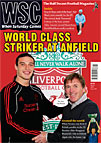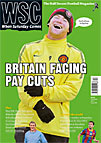 Fielding weakened teams does not necessarily have the desired for positive effect
Fielding weakened teams does not necessarily have the desired for positive effect
There is no question that Steve Coppell is a major figure in the history of Reading. He took the club into the top division for the first time in 2005-06 with a record 106 points and throughout the following season they were comfortably in the top half. But after a 1-0 win over Newcastle in the 36th fixture that kept them seventh and with a chance of European qualification, Coppell was infected by one of the blights of modern football, false pragmatism.
The fans might have been excited by the team’s progress but the manager was keeping the lid on: “It wouldn’t be a problem getting into the UEFA Cup”, he said “because I’d probably play the reserves. As far as I’m concerned we have a European Cup final every weekend in the Premiership.” Reading took one point from their last two games, losing their next match 2-0 at home to already-relegated Watford, and finished 8th, three points adrift of the European places. The following year they went down, with their weekly European Cup finals including a run of eight successive defeats after Christmas.
Mick McCarthy indulged in some Coppell-esque dissembling after Wolves won their two opening matches this season, to top the table for the first time since September 1962. “It will be a long time before I want to get into the Europa League,” he said. “If we look like getting in through the Fair Play League, I’m going to tackle somebody.” No doubt Wolves fans would be pleased if the team achieve the manager’s primary goal of staying up, but it is hard to imagine any of them would share his distaste for getting into Europe, something they last managed by winning the League Cup in 1980. Wolves had no trouble making progress in this season’s competition, beating Northampton 4-0 in the Second Round despite fielding an under-strength side. But all three clubs promoted to the Premier League went out: Swansea at Shrewsbury Norwich and QPR lost at home MK Dons and Rochdale respectively. Neil Warnock said he was pleased by his side’s result: “If I can’t get motivated for the competition I can’t blame the players if they can’t”.
Clearly some managers, fixated on Premier League survival, would welcome the opportunity to opt out of the competition as clubs were permitted to do in the early years. One of the beneficiaries of this were Birmingham City who won the 1962-63 League Cup in which only 11 of the 22 Division One clubs participated. Through winning last season’s cup, Birmingham returned to European competition for the first time in 50 years. They were also relegated, winning only two of the 12 League games played after beating Arsenal at Wembley. But the cup run does not seem to have been blamed for the downturn in form and relegation will not have been especially traumatic for fans of a club that has moved divisions ten times in the past twenty years.
In the coming months, some of the managers who gave up on the League Cup might consider putting out weakened sides for fixtures they expect to lose (something Mick McCarthy has done before) especially now they will no longer be fined by the Premier League for doing so. Meanwhile thousands of fans of Birmingham and Stoke, another side who took a cup seriously, will be taking in away matches in Braga, Kiev and Istanbul among other places. Tony Pulis and Chris Hughton could be partially excused for not prioritising all these games. For most of its existence the UEFA Cup was a simple knockout competition, but the recently renamed Europa League is needlessly bloated – teams who took part in two qualifying rounds will have played ten extra midweek fixtures in just over four months. But even the later rounds have been an imposition for some managers recently.
When Bolton lost to Sporting Lisbon in the last 16 in March 2008 they were missing several first teamers, rested for what was looking like a relegation battle. In February 2009, Aston Villa were understrength when beaten at the first knockout stage out by CSKA Moscow. Martin O’Neill said his priority was to qualify for the Champions League but even with most of their first team rested, Villa only drew their next match and eventually finished sixth; O’Neill’s standing among Villa fans was fatally damaged in the process.
False pragmatism can only have destructive effects. When managers see certain matches as an inconvenience, they are in effect conceding them. But if their clubs can’t take what they do seriously, then eventually the fans will cease to care too.
From WSC 296 October 2011



